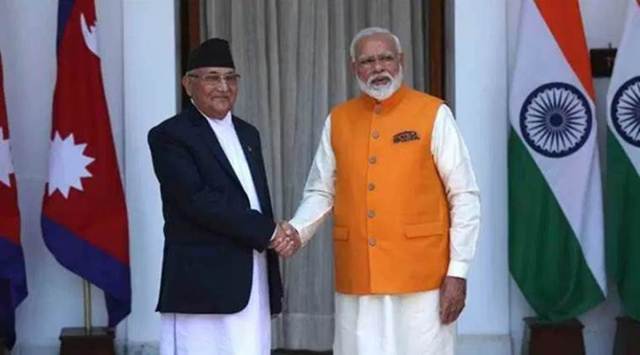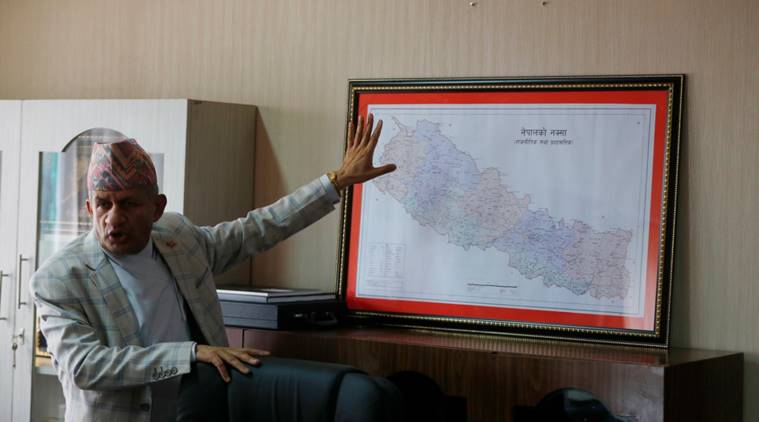The meeting will take place in Kathmandu where Nepal’s Foreign Secretary Shankar Das Bairagi will lead a team of officials while the Indian side will be led by Ambassador Vinay Mohan Kwatra.

The meeting is likely to take place via videoconference in view of the Covid-19 pandemic situation. While a date is yet to be announced, sources said they are looking at the possibility of holding the meeting on August 18.
Story continues below this ad
Opinion | In six years, India’s ties with other South Asian countries have frayed, providing Beijing with an opening
India is building roads in the Terai region, helping Nepal in its post-earthquake reconstruction work, building railway lines, a police training academy, a polytechnic college, an oil pipeline and border check posts. The government has allocated Rs 800 crore in this year’s budget for projects in Nepal.
The meeting — of the joint oversight mechanism to review projects established in 2016, and which last met in July 2019 — assumes significance since Indian and Nepalese officials have not met to discuss the Kalapani border dispute due to the pandemic.
New Delhi’s stand has been that a dialogue can be held after the two governments have “successfully dealt with the challenge of the Covid-19 emergency”.
Story continues below this ad
The boundary dispute between India and Nepal came to the fore last November when India published its new map following the bifurcation of Jammu and Kashmir into two Union Territories and the end of its special status under Article 370.
 Nepal foreign minister Pradeep Gyawali points to a map of Nepal during an interview with the Associated Press (AP)
Nepal foreign minister Pradeep Gyawali points to a map of Nepal during an interview with the Associated Press (AP)
Kathmandu had proposed talks to discuss the boundary issue. It was tentatively scheduled for March, but had to be put off due to the Covid-19 outbreak.
Nepal suggested a videoconference, and then claimed that New Delhi was dragging its feet on the proposal.
India’s inauguration this May of a new road from Dharchula to Lipulekh on the Mansarovar Yatra route angered the KP Sharma Oli government which came out with a new map of Nepal, adding to it an area of 370 sq km at the tri-junction of Nepal, India and China (Tibet) which India maintains is its territory.
Story continues below this ad
A Constitution amendment Bill was passed by Nepal’s parliament to legitimize the alteration or addition of Kalapani, Lipulekh and Limpiyadhura to the country’s new map.
The passage of the Bill and the new map led to breakdown of communication between the two countries. The last meeting between Ambassador Kwatra and Nepal’s Foreign minister Pradeep Gyawali took place on May 11, when the Nepalese side had protested the new road via Lipulekh. India though has been sending medical supplies to Nepal, including 10 ventilators on Sunday.
Next week’s meeting is the first opportunity for top officials from both sides to meet and discuss Indian government-funded projects in Nepal.
Sources in Kathmandu and New Delhi, however, cautioned that “not much should be read” into what will essentially be a “routine meeting”.
Story continues below this ad
India has maintained that it is willing to hold talks with Nepal on the boundary dispute if the Oli government creates a “conducive atmosphere” and “positive situation”.
“That has not happened yet,” an Indian government source told The Indian Express Tuesday. “Now the onus is on the Oli government,” the source said.
On the perception that India had not responded positively to Nepal’s offer for talks, sources said Delhi proposed a videoconference, phone calls between the Foreign Secretaries, and a possible visit by Nepal’s Foreign Secretary to India. Sources said the proposal was sent before the Nepal parliament took up the Bill relating to the boundary and map.
Following the passage of the Bill, Delhi’s response was frosty with the Ministry of External Affairs making clear to Kathmandu that “this artificial enlargement of claims is not based on historical fact or evidence and is not tenable. It is also violative of our current understanding to hold talks on outstanding boundary issues”.



 Nepal foreign minister Pradeep Gyawali points to a map of Nepal during an interview with the Associated Press (AP)
Nepal foreign minister Pradeep Gyawali points to a map of Nepal during an interview with the Associated Press (AP)





